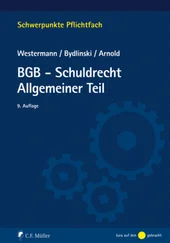Lauren leaned out the window with the bullhorn.
“Evacuate now! The dam’s gone at Kentucky Lake!”
She kept repeating the warning as the sheriff maneuvered through the wreckage. The damage was extensive. Just like Gilbertsville, Raitland was a wasteland of broken glass, shattered brick walls, and collapsed buildings.
Lauren realized it was useless. Those who even heard her warning were too disoriented or stunned to respond. And there wasn’t time. The flood would hit them within minutes. The town was going to be swept away.
An elderly woman ran into the street right in front of them, waving her arms. Hessel braked hard, barely missing her.
“Lou!” the woman screamed. “It’s Dave. You’ve got to help me.”
The sheriff climbed out of the car. “Is that you, Mary Beth?” It was the wife of his cousin, Dave.
Seeing her more closely, Elizabeth realized the woman wasn’t elderly at all. Early thirties. She looked older because her face and hair were powdered white from plaster dust. A red gash crossed her left cheek.
“You’re bleeding pretty bad, Mary Beth.”
The woman touched her cheek and stared almost absentmindedly at the blood on her fingers.
“Where’s Dave?” the sheriff asked.
“The ceiling fell on him. Please, Lou. He’s hurt bad.”
The house was across the street. The front porch and part of the roof had collapsed.
Hessel said softly, “All right, Mary Beth. I’m coming.” He turned to Lauren. “I’m going to stay here,” he said. “See what I can do to help. You get on up to Paducah and tell them what’s heading their way. Then you and the boy get the hell away from there.”
Hessel hurried over to his cousin’s smashed home. The woman had already disappeared through the front door. Wanting to help, Lauren followed the sheriff. She told Bobby to stay in the car.
The two-story frame house had shifted on its foundation. Hessel went inside. His cousin lay in the living room, pinned on his stomach with a joist beam across his spine. He was bleeding from both ears.
“I think my back’s broken,” he said between gritted teeth.
Seeing Lauren behind him, Hessel grabbed her by the shoulders, hard. “Dammit, Lauren. I’m staying with my people. You get out of here. Now!”
Lauren kissed Hessel on the cheek then ran back to the patrol car. Sliding behind the steering wheel, she made a tight U-turn and raced back toward the highway. The ground started shaking again as the car nosed up onto the two-lane.
“Grandma, there it is!” Bobby shouted from the back seat.
Lauren didn’t look behind. She didn’t have to. She knew the flood water was crashing toward them down the valley. She could hear it.
NEAR CARUTHERSVILLE, MISSOURI
JANUARY 13
2:16 A.M.
DICK MARSDEN POURED A CUP OF HOT COFFEE from his thermos and settled back comfortably in his captain’s chair. Only two cars were loaded onto the ferry that every other hour crossed from the Tennessee shore to the Missouri side of the Mississippi, then back again. It was the last run of the night. The gangplank had been pulled in and the metal gate secured across the ferry’s open bow.
They’d shove off in two or three minutes. Running ahead of schedule, Marsden had time for a quick cup of coffee.
The view from the pilothouse was impressive, even in the dark. The Mississippi was nearly two miles wide, nothing at all like it was at St. Louis. Marsden had worked on fleeting barges there for nearly twenty years. The river at St. Louis—narrow and fast flowing—was like a muddy canal.
Down here near the Missouri boot heel, it was a different story. Three miles upstream, a new four-lane suspension bridge crossed the river. Marsden could just make out the red aircraft warning lights on the top of the span’s superstructure. The bridge handled all the interstate traffic crossing from Dyersburg, Tennessee, to Caruthersville, Missouri, where motorists could pick up Interstate 55. To the south, it was 90 miles to Memphis. To the north, St. Louis was 160 miles away.
The ferry mainly served locals who worked in Tennessee and used it to shave commuting time from their homes in Missouri.
Marsden had just set his coffee mug on the instrument console when the first shock wave hit, throwing him out of his chair so hard his forehead struck the steering wheel. The blow stunned him. The ferry had risen sharply in the water, pulling at its moorings as if a giant hand were trying to pick it up. Then it fell, the hull slamming down again.
Trying to stand on unsteady feet, Marsden gripped his seat so he wouldn’t be knocked over again. He watched in disbelief as waves appeared suddenly on the river, six-foot swells rolling from shore to shore. Grabbing a pair of binoculars, he looked upstream toward the bridge. He saw the glint of headlights midway across the deck. Probably a long-distance trucker.
Then, unbelievably, the bridge’s long center span snapped in two. Marsden saw the truck, its long trailer outlined in yellow lights, plunge into the river. The deck and part of the superstructure fell right on top of it, throwing up a wall of spray.
The shaking hadn’t let up. Every time Marsden tried to stagger out of the pilothouse, he was knocked against the bulkhead.
The cars parked down on the deck were bouncing around like toys, sliding back and forth as the ferry pitched and rolled.
Only minutes earlier, a big three-decker towboat lit up like a Christmas tree and pushing a long string of coal barges had glided by, heading downstream toward Memphis. Marsden watched as the same towboat went by him again, this time heading upriver. It took a moment for his dazed mind to comprehend what he was seeing.
The current was pushing the barges and tow backward.
Across the river, on the Missouri side, large sections of the bank were falling into the water. So much of the shoreline was caving in over there that it looked like a landslide.
His deckhand staggered through the doorway. His face was pale. “The river’s full of whirlpools,” he said.
Marsden barely heard him. He had his binoculars on the towboat and barges rapidly heading upstream toward the sunken bridge. Then, as he watched, the tow disappeared.
There was no other way to describe what happened. The tow went first, dropping out of sight. Then the string of barges, the last one lifting up, red running lights still ablaze as it nosed up and vanished from view.
When the shaking finally stopped, Marsden went out on the narrow bridge next to the pilothouse. The river was still wild. The deckhand was right about the whirlpools. A big one had opened up, swirling like a huge inverted funnel just downstream from the ferry. Marsden focused his binoculars on where the barges and towboat had disappeared. It was over two miles upstream out toward the middle of the river.
Marsden saw a line of boiling white water and realized what he was looking at. It was the foaming edge of a sharp drop-off.
There was a waterfall out there.
OAK RIDGE NATIONAL LABORATORY
OAK RIDGE, TENNESSEE
2:16 A.M.
WEARING A WHITE LABORATORY SUIT AND CLOTH boots designed to prevent potentially lethal sparks, Fred Booker mentally ran through the final checklist before climbing into the firing bunker. He was in the Shock Wave Laboratory in one of the cavernous brick buildings at the Oak Ridge National Laboratory’s top-secret Y-12 plant. Booker was getting ready to fire the cannon, which was technically called a two-stage, light-gas gun.
Protected by twenty-foot-high fences topped with razor wire and guard towers manned by marksmen with automatic weapons, the Y-12 plant was one of the most secure research centers in the United States. Formerly built to produce uranium for the Manhattan Project in the early 1940s, it had evolved into a cutting-edge engineering laboratory equally capable of redesigning on an emergency basis the propellers for a nuclear attack submarine, building a better beer bottle, or making major breakthroughs in robotics. The facility spanned two and a half miles and contained some 250 buildings.
Читать дальше












